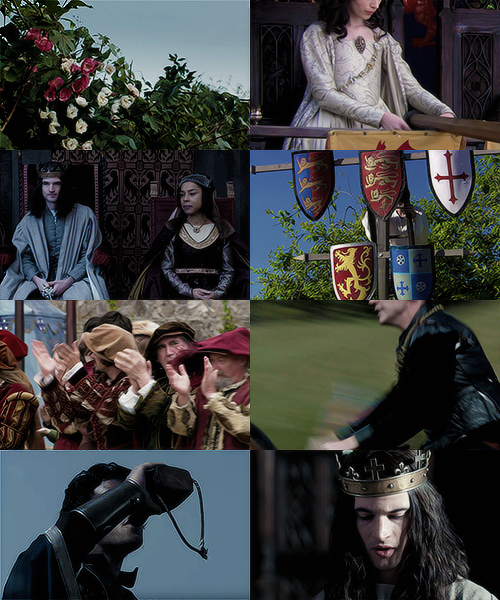eddy-of-westminster:Loveday - 24 March 1458The ‘Loveday’ of 24 March 1458 was an attempt by Henry VI
eddy-of-westminster:Loveday - 24 March 1458The ‘Loveday’ of 24 March 1458 was an attempt by Henry VI to reconcile the two squabbling factions amongst his nobility. Despite a public display of unity the effort was a failure and in the following year fighting broke out again at the start of the second phase of the Wars of the Roses.In the early 1450s the English political establishment became split into two factions - supporters of Henry VI’s government as led by Edmund Beaufort, second duke of Somerset, and opponents of that government, led by Richard, duke of York. Somerset was in charge in Normandy when it was lost to the French in 1449-50, but his political career survived that military disaster and he began to dominate Henry’s government.York appears to have felt threatened by this and returned from Ireland in 1450 in an attempt to overthrow Somerset, but he failed to gain support from his fellow peers. In 1458 Henry VI made a determined attempt to reconcile the two parties. He summoned a great council, to be held in London to be attended by most of the nobility. Warwick, who was then Captain of Calais, may not have been invited, but attended anyway.Eventually the two sides came to an agreement. It is clear that the Yorkists were seen as having been responsible for the outbreak of violence in at the Battle of St. Albans in 1455 and they made most concessions. The agreement was announced on 24 March and on the same day was officially sealed with a solemn procession to St. Pauls for a mass. Queen Margaret walked arm-in-arm with York, Salisbury with Somerset and Warwick with either Henry Percy, earl of Northumberland or Henry Holland, duke of Exeter, all following behind Henry VI.The ‘loveday’ agreement had little long term impact. York and Salisbury were still excluded from government. Later in the year Warwick was summoned to London to answer charges of piracy, and the visit descended into a brawl. Warwick just managed to escape to his ships and return to Calais, from where he refused orders to return. Both sides blamed the other for the outbreak of violence, and early in 1459 both sides began to prepare for war. When the fighting did resume the Lancastrians were better prepared, and the Yorkist leaders were forced into exile after abandoning their armies at Ludford Bridge, but they were soon able to return from exile and captured Henry VI at Northampton on 10 July 1460, just over two years after his 'loveday’.It is generally believed by some that during the Loveday festivities, Edward, Earl of March (the future Edward IV) first met Elizabeth Woodville when her brother, Anthony jousted before Henry and Margaret. -- source link
#history#edward iv#henry vi#anthony woodville#elizabeth woodville#15th century
